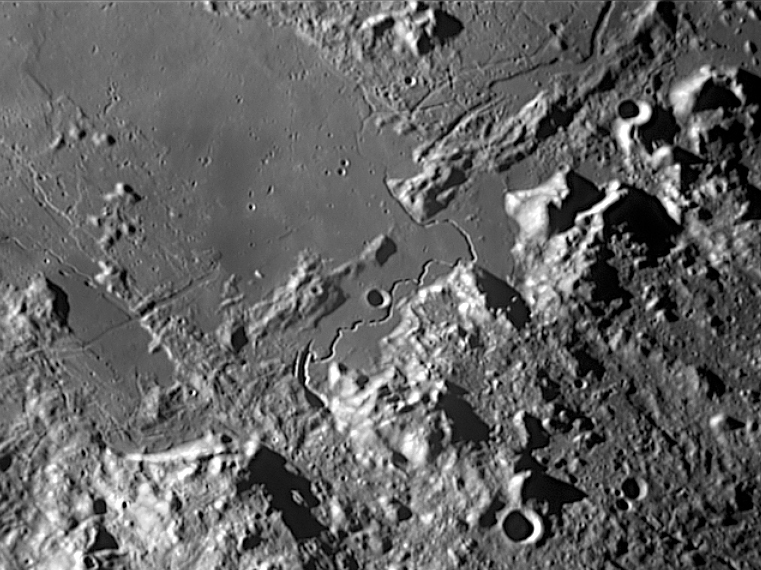
image from ["maito:viladric@club-internet.fr" Christian Viladrich], France
The Hadley Rille is the best studied sinuous rille on the Moon, because Apollo 15 astronauts explored it, and it was studied in preparation for that mission and afterward. Christian’s image shows nothing that we haven’t seen before - but mostly we’ve only seen this level of detail on Apollo Metric images! This remarkably sharp image clearly shows the narrow extension of the rille beyond the unnamed peak west of Mount Hadley. There is even a hint of the extremely narrow rille along the east side of the unnamed peak - this is otherwise visible only on the Metric image. Across Palus Putredinis is the older mass of rough terrain cut by the Archimedes Rilles. Earlier, I speculated that this slab of material slid from the Apennines downslope to its present position. The three separate blocks of hills near the rilles look like they were originally continuous but that they have each moved a different distance from the Apennine Front. Finally, there is a definite linear feature extending from near Aratus B out of the bottom right corner of the image. This has very irregular edges and looks like collapses into a narrow depression. Wonder what it is?
Technical Details
3 September 2007. Celestron 14 at F/20 + Skynyx 2.0M @12 fps; exposure 7.20ms, gain 5.24. 500 images selected and stacked with Iris software.
Yesterday's LPOD: Another Kind of Melt
Tomorrow's LPOD: Copernicus on the Limb
COMMENTS?
Register, Log in, and join in the comments.



